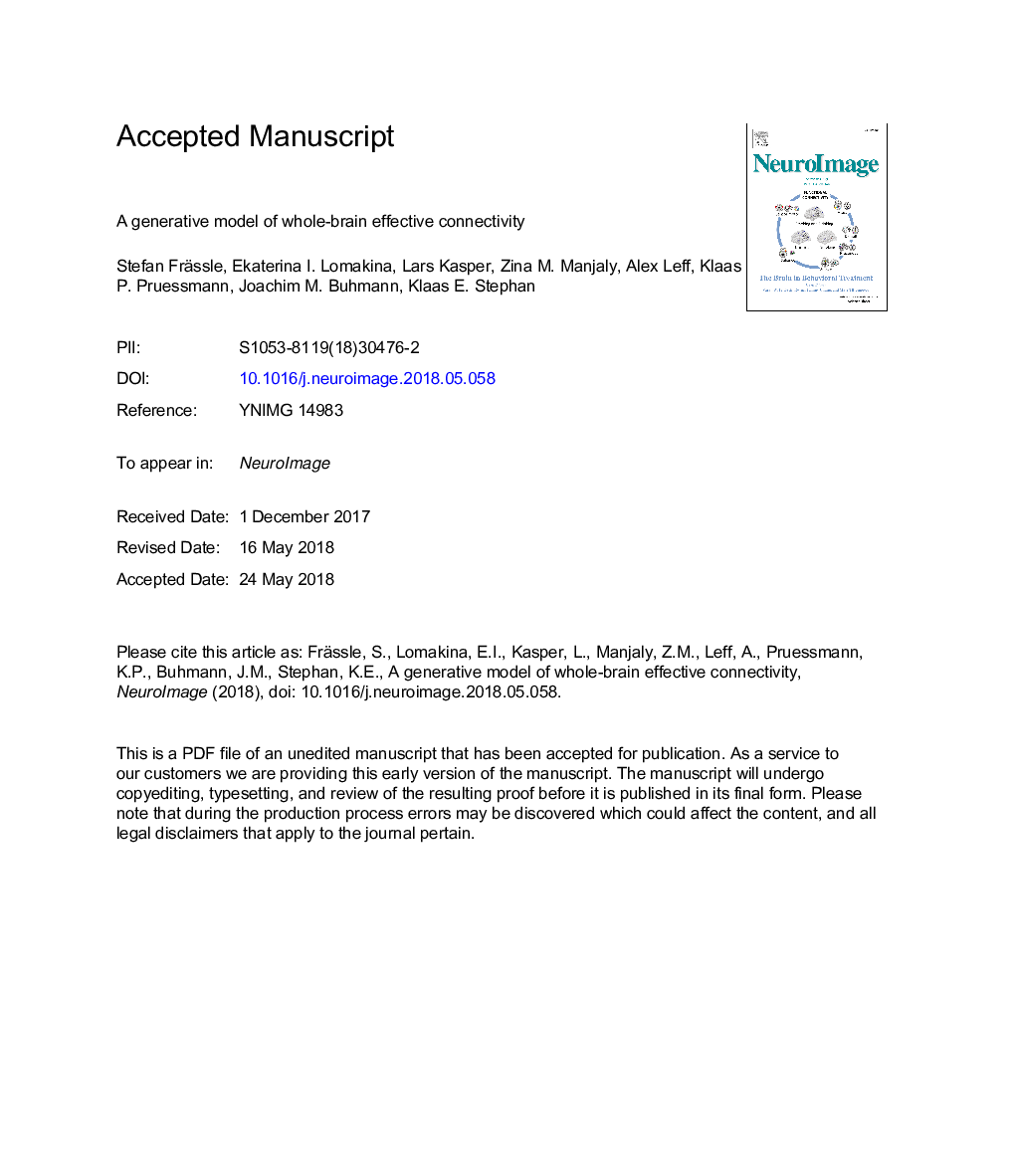| Article ID | Journal | Published Year | Pages | File Type |
|---|---|---|---|---|
| 8686719 | NeuroImage | 2018 | 77 Pages |
Abstract
This paper introduces sparsity constraints to the variational Bayesian framework of rDCM as a solution to these problems in the domain of task-based fMRI. This sparse rDCM approach enables highly efficient effective connectivity analyses in whole-brain networks and does not require a priori assumptions about the network's connectivity structure but prunes fully (all-to-all) connected networks as part of model inversion. Following the derivation of the variational Bayesian update equations for sparse rDCM, we use both simulated and empirical data to assess the face validity of the model. In particular, we show that it is feasible to infer effective connection strengths from fMRI data using a network with more than 100 regions and 10,000 connections. This demonstrates the feasibility of whole-brain inference on effective connectivity from fMRI data - in single subjects and with a run-time below 1â¯min when using parallelized code. We anticipate that sparse rDCM may find useful application in connectomics and clinical neuromodeling - for example, for phenotyping individual patients in terms of whole-brain network structure.
Keywords
Related Topics
Life Sciences
Neuroscience
Cognitive Neuroscience
Authors
Stefan Frässle, Ekaterina I. Lomakina, Lars Kasper, Zina M. Manjaly, Alex Leff, Klaas P. Pruessmann, Joachim M. Buhmann, Klaas E. Stephan,
